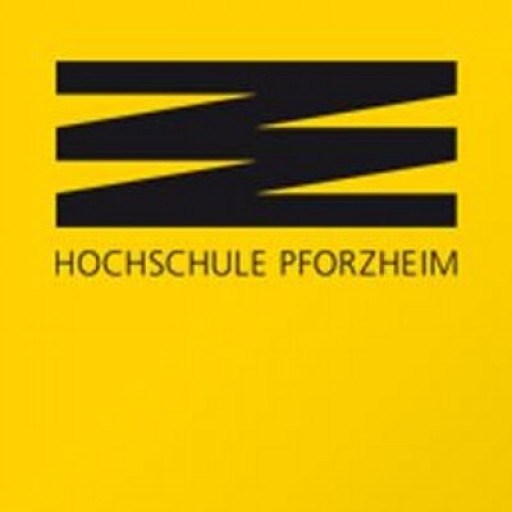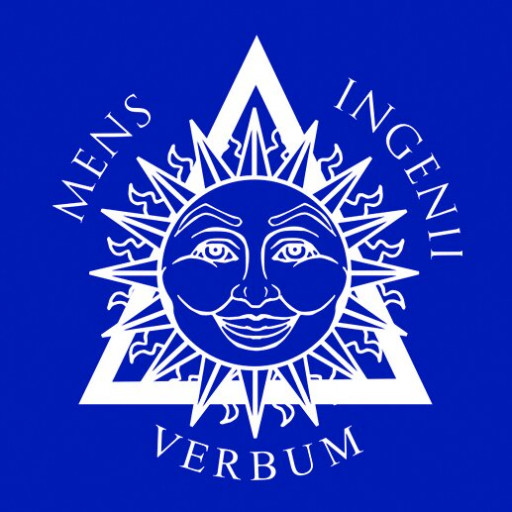Photos of university / #tallinnatehnikakorgkool
Degree Programme Title: Medical Devices and Healthcare Management
Programme Description:
The Bachelor’s degree in Medical Devices and Healthcare Management at the University of Applied Sciences provides students with a comprehensive education in the development, regulation, and management of medical devices within healthcare environments. This interdisciplinary programme combines technical knowledge of medical technology, engineering principles, and innovative product design with vital insights into healthcare systems, hospital management, and health policy. Students will acquire the skills necessary to assess, implement, and oversee medical devices, ensuring compliance with international standards and regulations, while also understanding the operational aspects of healthcare facilities.
Throughout the programme, students explore various aspects of medical device design, manufacturing, quality assurance, and lifecycle management. They are trained to evaluate the safety, efficacy, and usability of medical devices, aligning with the latest technological advancements and regulatory requirements. The curriculum emphasizes practical skills through laboratory work, internships, and project-based learning, preparing graduates to meet the demands of the evolving healthcare industry.
Additionally, the programme addresses key issues in healthcare management, including health economics, strategic planning, process optimization, and health information systems. Graduates will be equipped to work in multidisciplinary teams, communicating effectively with clinicians, engineers, regulatory bodies, and other healthcare stakeholders. They will also develop a strong understanding of ethical considerations, patient safety, and data protection.
Career prospects for graduates include roles in medical device development and regulation, clinical engineering, healthcare consultancy, hospital management, and quality assurance. The interdisciplinary nature of the programme ensures that students are prepared to contribute innovative solutions to challenges faced by healthcare providers and medical technology companies. With the growing importance of medical devices in modern healthcare, this programme offers a unique opportunity to be at the forefront of technological and managerial advancements in the healthcare sector.
By combining theoretical knowledge with practical application, the Medical Devices and Healthcare Management programme aims to foster highly skilled professionals who can drive innovation, improve patient outcomes, and support sustainable healthcare delivery systems worldwide.
The Bachelor’s degree program in Medical Devices and Healthcare Management at the University of Applied Sciences is designed to prepare students for the rapidly evolving healthcare industry by combining technical knowledge with managerial skills. Throughout the program, students gain a comprehensive understanding of medical device technology, healthcare systems, regulatory frameworks, and quality management processes. The curriculum emphasizes both theoretical foundations and practical applications, ensuring graduates are equipped to contribute effectively to the healthcare sector.
Students begin with foundational courses in human anatomy, physiology, and medical sciences, establishing a solid base for understanding medical devices and their functions within the human body. As the program progresses, students explore specialized topics such as biomedical engineering, medical device design, and manufacturing processes. They learn about the development, testing, and approval of medical devices, with a focus on compliance with national and international regulations. The coursework also addresses trends in digital health, telemedicine, and medical software, reflecting the industry's move towards innovation and integration of new technologies.
Complementing technical skills, the program offers modules in healthcare management, health economics, and organizational leadership. These courses help students develop competencies in strategic planning, financial management, and operational optimization within healthcare organizations. Students also engage in project work and internships, providing real-world experience in medical device companies, hospitals, or healthcare technology providers. Such practical elements aim to bridge the gap between classroom learning and industry needs, fostering problem-solving abilities and teamwork skills.
The program emphasizes quality assurance, risk management, and ethical considerations vital to healthcare organizations. Graduates will be prepared to work in various roles such as medical device product managers, quality assurance specialists, regulatory affairs officers, or healthcare consultants. The interdisciplinary nature of the program ensures students are adaptable and capable of working across different sectors within the healthcare industry. Upon graduation, students will be well-equipped to contribute to the development, regulation, and management of medical devices, ultimately enhancing patient care and safety.
With a focus on current technological advances and regulatory requirements, the program prepares students for a dynamic career environment. The University of Applied Sciences supports innovation through modern laboratories, collaborations with industry partners, and opportunities for research projects. This combination of technical expertise, managerial competence, and real-world experience aims to produce graduates who are ready to meet the challenges of modern healthcare and medical device industries.
Program requirements for Medical Devices and Healthcare Management at the University of Applied Sciences typically include a combination of academic prerequisites, language proficiency, and other specific criteria. Applicants are generally required to have completed secondary education comparable to the German Hochschulreife or Abitur. A solid background in sciences such as biology, chemistry, or physics is also recommended to ensure preparedness for the technical and scientific aspects of the program.
Proficiency in the English language is mandatory, with applicants expected to provide proof of English language skills through standardized tests like TOEFL or IELTS, reflecting a minimum level of B2 according to the Common European Framework of Reference for Languages (CEFR). If applicants are non-native speakers, they may need to demonstrate recent academic or professional use of English.
Additional requirements may include a motivational letter outlining the applicant’s interest in healthcare management and medical devices, as well as relevant work experience or internships in healthcare or technical fields. While prior experience is not exclusively mandatory, it can enhance application competitiveness. Some programs might also require a curriculum vitae (CV) and references from previous educators or employers.
The admissions process might involve an interview or assessment center to evaluate interpersonal skills, motivation, and suitability for a career in healthcare management. The university values applicants with a strong interest in interdisciplinary work, technological innovation, and the social aspects of healthcare.
International students are typically required to meet visa and residence permit regulations, and may need to prove additional financial resources as part of the application process. It is advisable to review the specific prerequisites on the university’s official website each application cycle, as requirements may vary slightly depending on the country of origin and the evolving university policies.
In summary, prospective students should have a secondary school diploma equivalent to the German Abitur, demonstrate proficiency in English, provide relevant academic or professional background, and submit a motivation letter and CV. Additional criteria such as interviews or language tests may be part of the selection process. Meeting these requirements ensures eligibility for admission into the Medical Devices and Healthcare Management program at the University of Applied Sciences.
The financing options for the Medical Devices and Healthcare Management program at the University of Applied Sciences are designed to accommodate diverse student needs and backgrounds. Prospective students can explore various funding sources to support their studies, including government-funded scholarships, grants, and loans. The university participates in national scholarship programs which are available to both domestic and international students based on academic achievement, financial need, or specific eligibility criteria. Additionally, students may be able to access student loans provided by governmental or private financial institutions, enabling them to cover tuition fees and living expenses throughout their course duration.
International students are encouraged to investigate external scholarship opportunities offered by organizations, foundations, or their home countries, many of which support studies in healthcare-related fields. The university also provides information on part-time work opportunities, which can be a practical way for students to finance their studies while gaining relevant experience in the healthcare sector. These opportunities are often available on campus or in collaboration with local healthcare providers.
Tuition fees for the program are structured according to the student's residency status, with domestic students benefiting from subsidized rates, while international students pay the full fee. The university offers flexible payment plans, allowing students to divide payments into manageable installments across the semester or academic year. Additionally, some students may qualify for discounts or fee waivers based on academic merit or specific scholarship awards.
Students are advised to contact the university’s financial aid office early in their application process to learn more about available funding options, application procedures, and deadlines. The university also provides guidance and counseling to help students identify suitable financial resources tailored to their individual circumstances. Overall, the financing structure aims to ensure that financial barriers do not hinder qualified candidates from pursuing a comprehensive education in Medical Devices and Healthcare Management.
The Bachelor’s degree program in Medical Devices and Healthcare Management at the University of Applied Sciences provides students with comprehensive knowledge and practical skills necessary for the rapidly evolving healthcare industry. This interdisciplinary program combines technical training in medical device development, maintenance, and regulatory compliance with managerial competencies in healthcare organization, administration, and quality management. Students are introduced to the principles of biomedical engineering, medical technology innovations, and the regulatory landscape governing medical devices across different regions, ensuring they are prepared for international standards and practices.
Throughout the course, students engage in hands-on laboratory work, internships in hospitals or medical device companies, and projects that simulate real-world scenarios. The curriculum emphasizes the importance of patient safety, ethical considerations in healthcare, and the integration of technological solutions to improve healthcare delivery. Additionally, students acquire skills in healthcare project management, supply chain logistics, and financial planning within medical institutions.
The program aims to prepare graduates for employment roles such as medical device technician, healthcare project manager, quality assurance specialist, or regulatory affairs officer. It also serves as a solid foundation for those interested in further studies in biomedical engineering or healthcare administration. The university’s collaborations with leading hospitals and medical device companies provide students with valuable networking opportunities and practical experience that enhance their employability. Graduates of the program are equipped to contribute to innovations in medical technology and to manage healthcare organizations efficiently, ultimately improving patient outcomes and supporting the ongoing digital transformation of healthcare systems worldwide.









